
Cancer Treatment and Precision Medicine Forum: Taiwan expected to seize the opportunity for digital infrastructure and diagnostics
2023-01-10
Organised by the Department of Medical Affairs, Ministry of Health and Welfare, the "Cancer Treatment and Precision Medicine in APAC Forum 2022" invited healthcare influencers and leaders in Southeast Asia and Taiwan to share their perspectives of what has been developed and adopted based on the said topic.
Chung-liang Shih, Deputy Minister of Health and Welfare, opened the talk with Taiwan's industry landscape, saying that Taiwan boasts of its proton-equipped facilities in terms of the number and density as opposed to Asia and the world. The regulatory environment, too, has aligned with demands on industry development of diagnostics, cell-based therapies and biological products. Shih pointed out that increased cooperation between healthcare and technology sectors resulted in the postivie outcomes of cancer treatment. The Ministry looks to bridge Taiwan and the Southeast region through the "New Southbound Policy".
Yueh-ping Liu, Director-general of Medical Affairs, added that Chang Gung Memorial Hospital in Linkou and Kaohsiung, and Taipei Medical University Hospital had built their proton therapy centres. Eleven more are now in construction which will provide the capacity to treat cancer patients from Southeast Asia.
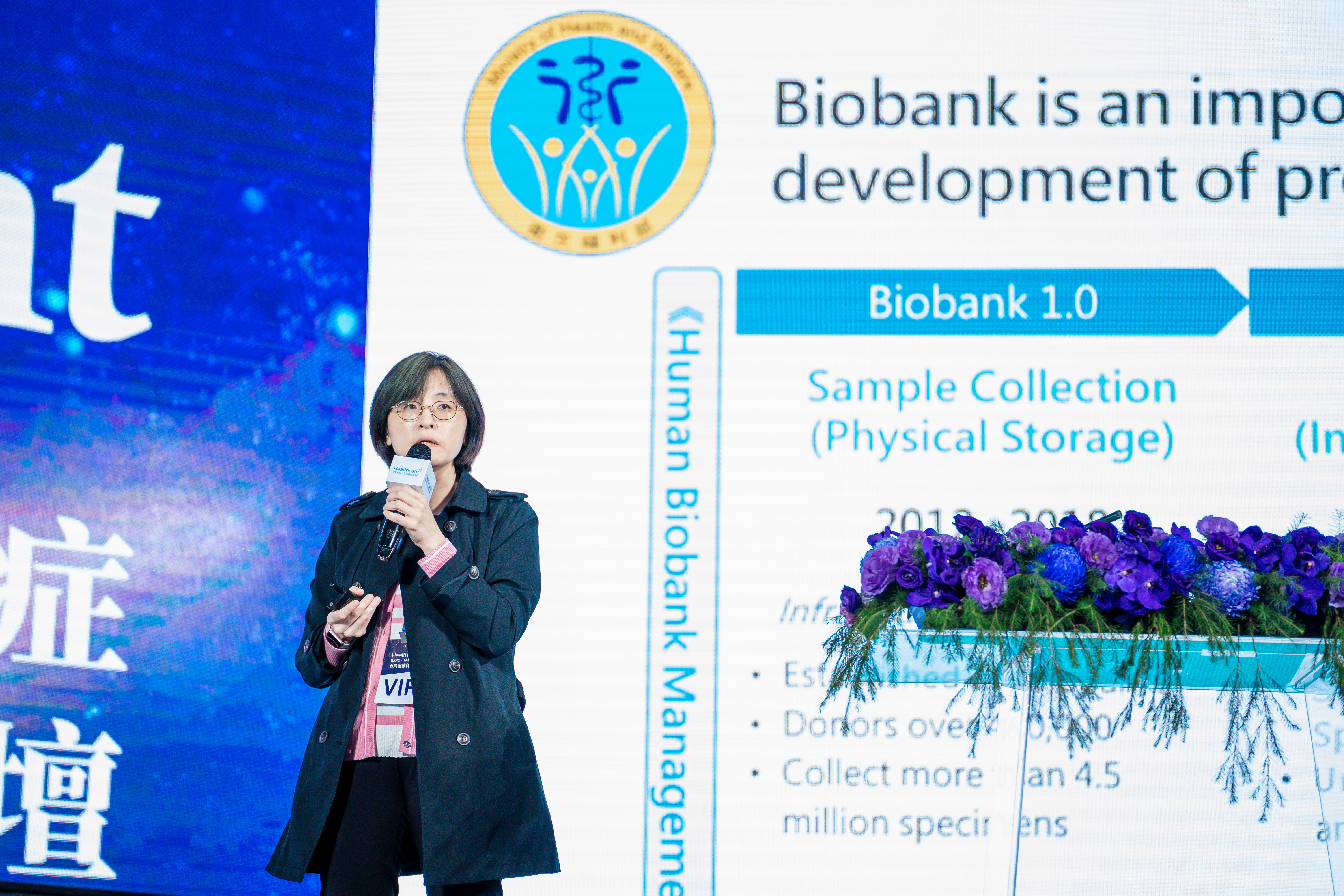
▴Director-general Yueh-ping Liu: Precision medicine correlates highly with how biological big data is used
Personalised cancer treatment
Industry shakers Varian and Roche were invited to present what they have discovered from cancer treatment. Following personalised healthcare, said Espen Walker, Integrated Strategy Leader at Roche, patient-centric care channels science and technology into treatment. Not only has the patient outcome been improved, but also has the R&D development progressed. According to Walker, targeted therapies, Comprehensive Genomic Profiling (CGP) specifically, are the centre of attention in cancer research recently. Roche is aiming at CGP portfolio to support personalised cancer treatment.
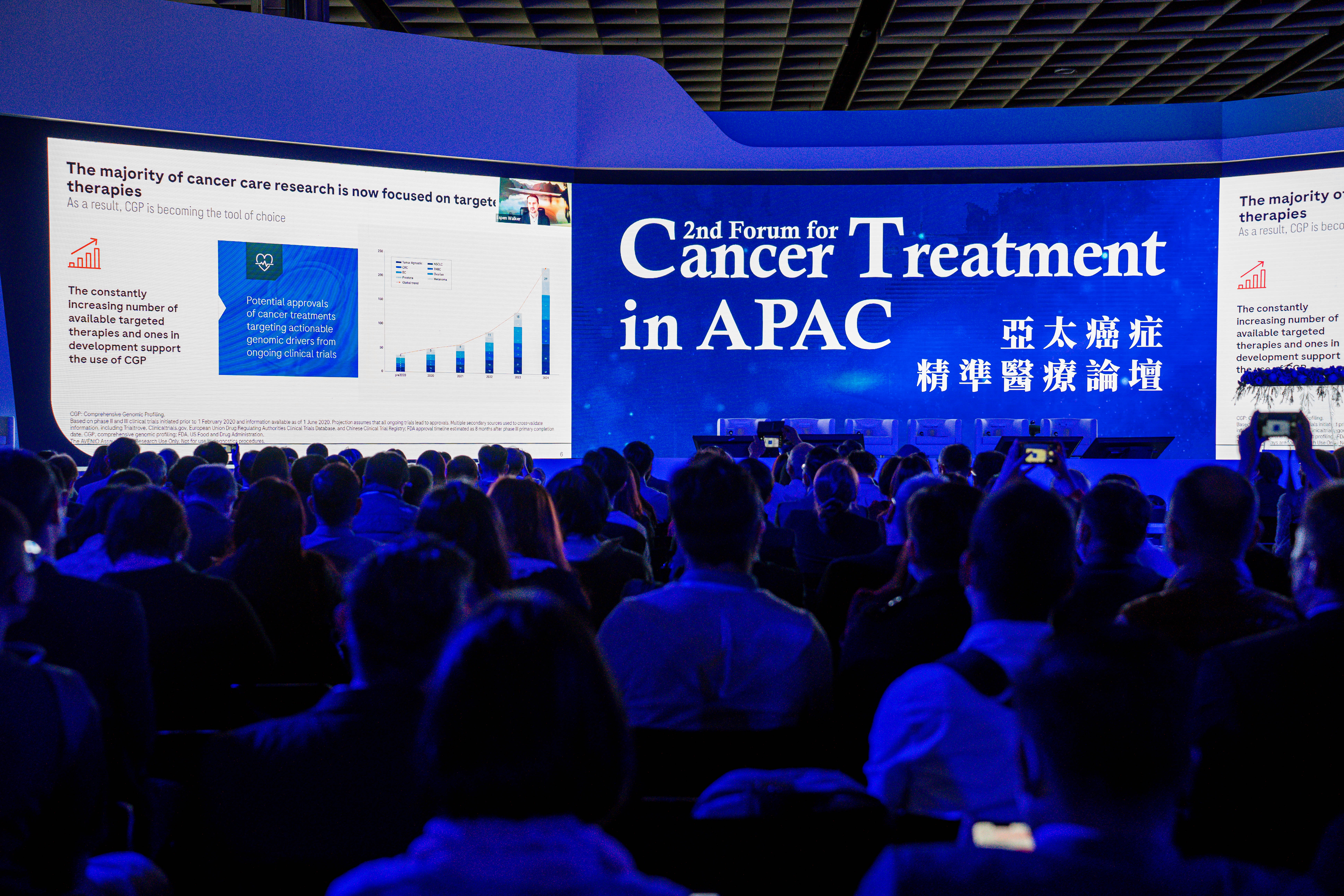
▴Espen Walker, also the Chair of Board of the Precision Cancer Consortium (PCC), mentioned that PCC works to increase accessibility, and awareness of diagnosis and genome research, facilitating cooperation between pharmaceutical companies, CROs and governments.
Deepak Khuntia, SVP & Chief Medical Officer at Varian Medical Systems, introduced Flash therapy and what it does. As opposed to the traditional approach, Flash therapy achieved an equivalent or better performance in pre-clinical studies, namely in tumour size, toxicity to normal tissues and increased immunity. Flash therapy is anticipated to extend to skin cancer, breast cancer and non-cancerous diseases.
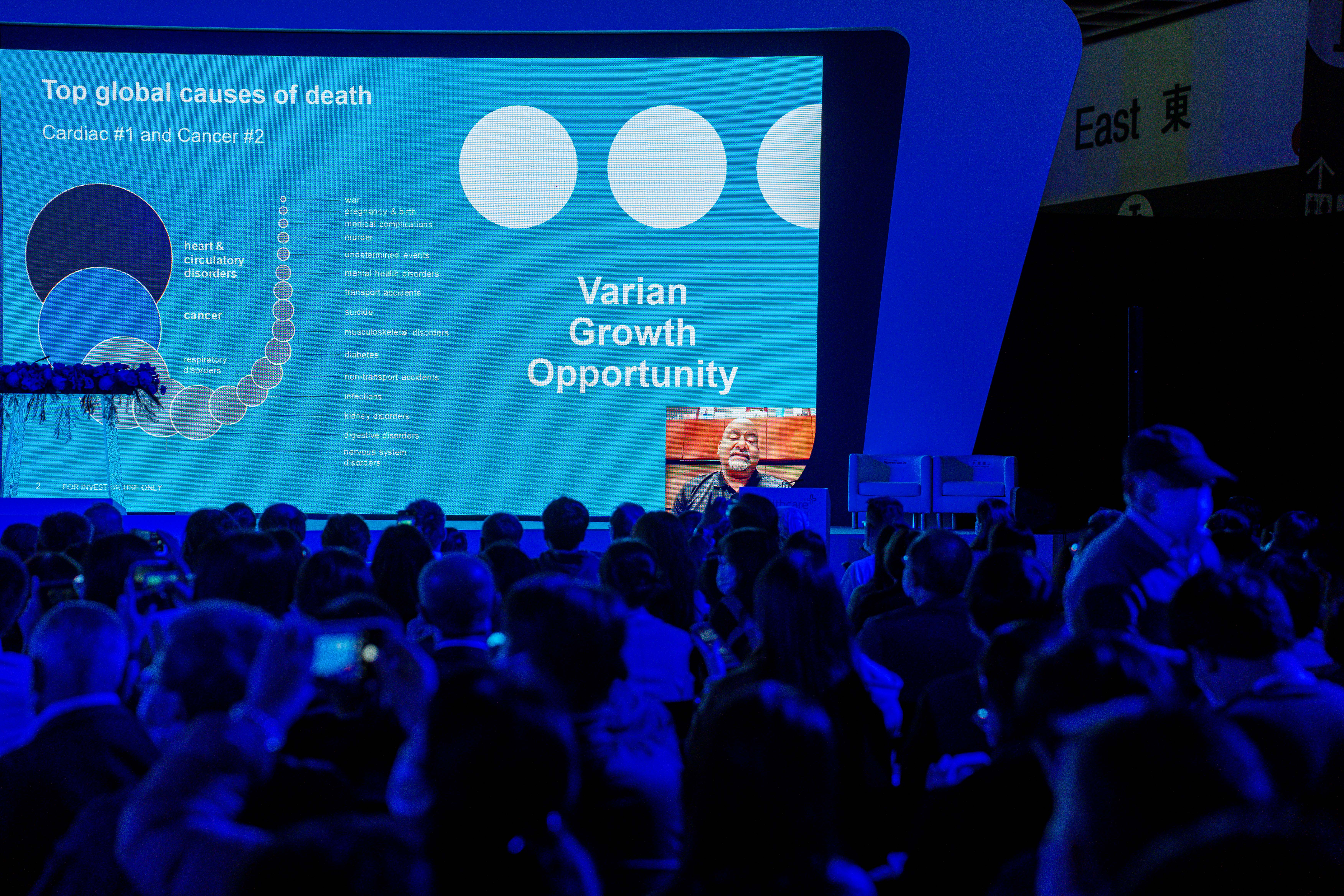
▴Dr Deepak Khuntia, SVP & CMO at Varian Medical Systems, presented at the forum with Varian's growth opportunity
Taiwan's MedTech in AI-assisted diagnosis, data-driven solutions
Advantech, aetherAI, AsusTek and Healthconn shared their insights on the advancement of information and communication technology (ICT) and the current development of intelligent healthcare. Advantech's AI-assisted medical imaging analytic platform has worked well in pneumothorax, aortic dissection and breast cancer detection, and is expected to further expand its international footprint. Allen Lin, Chairman of Healthconn, said that Healthconn has invested in providing data-driven, personalised health risk analysis and management solutions, collecting and using massive, accurate data generated by laboratory tests.
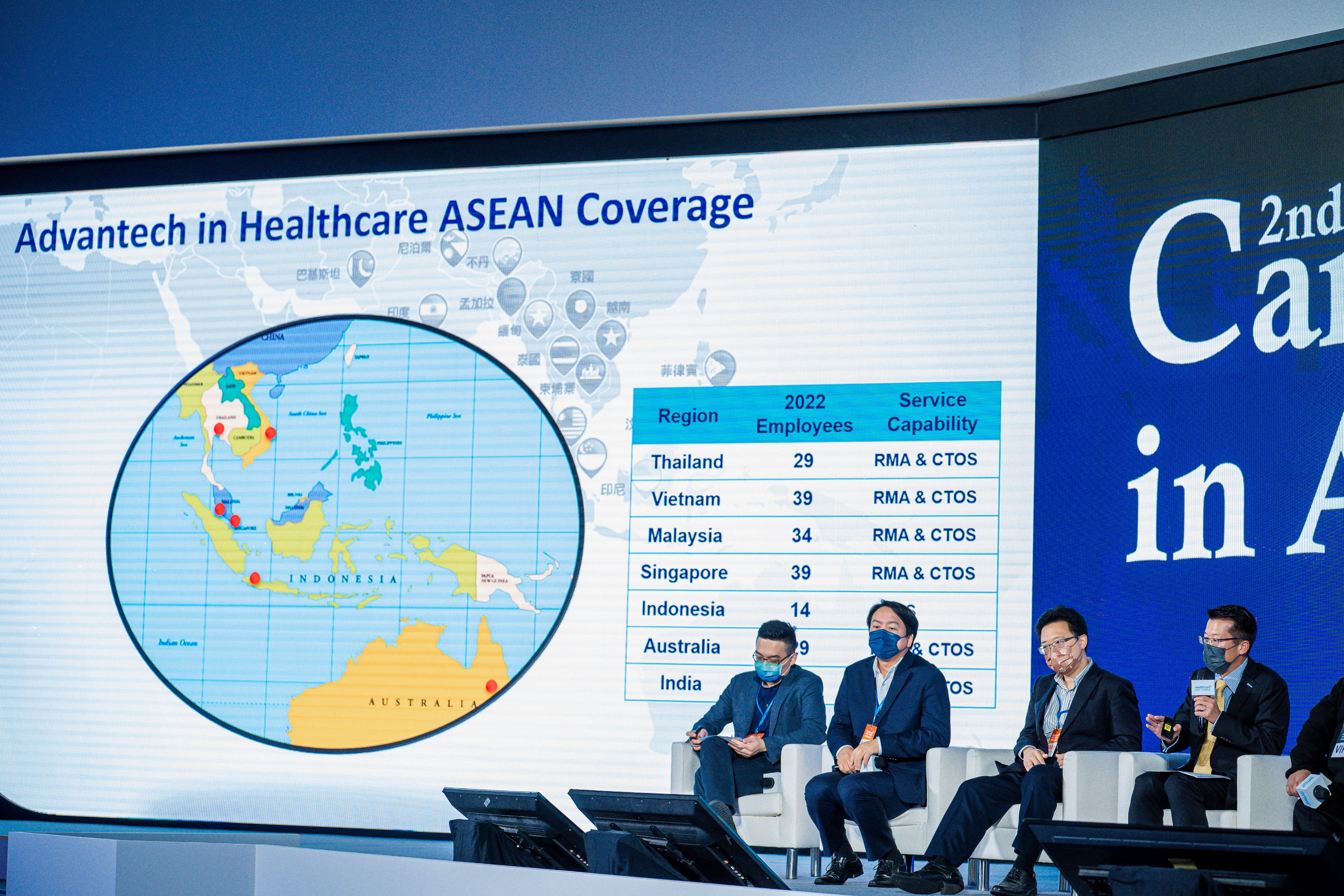
▴(Left) Joe Yeh, CEO of aetherAI, Peter Wu, GM of Asus Cloud, Allen Lin, Chairman of Healthconn and MC Chiang, VP of Service-IOT Group at Advantech.
Taiwan finds the niche in APAC: Proton therapy, EMR/EHR, big data and 5G
Following the trend in precision medicine and personalised cancer treatment, countries in Southeast Asia are either closing or filling the gaps. Malaysia and Thailand have been in action to develop cancer treatment, albeit the challenges come with lacking facilities, radiologists and digital infrastructure. Both countries reckoned that Taiwan has a competitive edge in terms of hospital IT systems, EMR/EHR, big data, 5G telemedicine and international medical services, making Taiwan an ideal partner for cancer treatment.
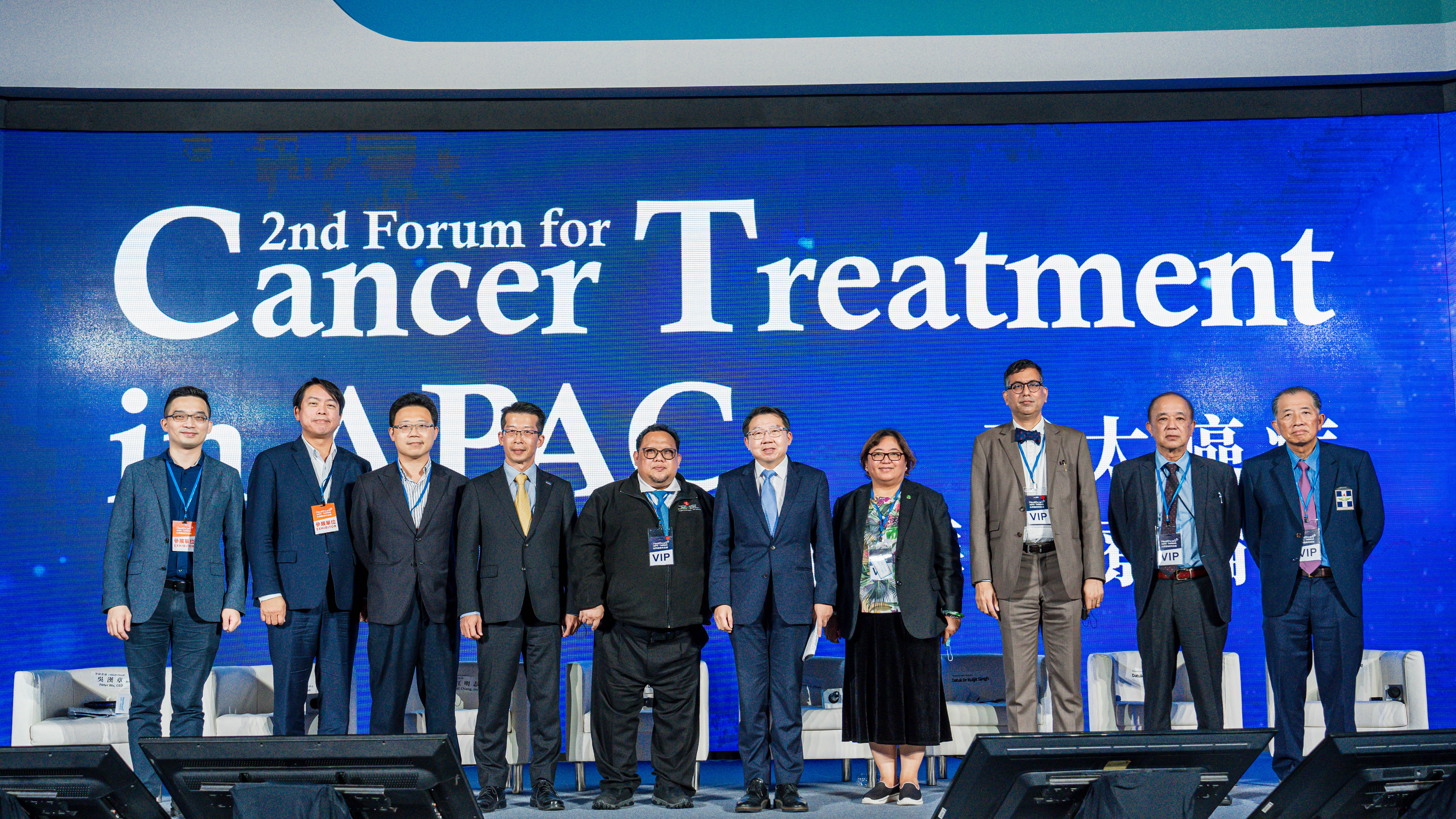
▴Representatives in Taiwan and from APAC in talks regarding cancer treatment in respective markets.
Thailand 4.0: Incorporation of precision medicine, where high-speed computing and big data infrastucture are in high demand
According to Dr Chaisit Kubwiwat, Director of Vibhavadi Hospital, the country now sees primary results from a cancer treatment project wherein eight universities have participated in genome sequencing of cancer cells. What has been found or learnt from that will lay a foundation to guide further development of cancer diagnosis, drugs and targeted therapies. Thailand will continue the building of the bio database and thus high-speed computing, data storage, analysis and access control are necessary for that matter.
There are 180,000 patients diagnosed with cancer annually in Thailand whilst 114,000 die from it, with 34 specialist hospitals and 51 general hospitals performing surgeries and chemotherapies.
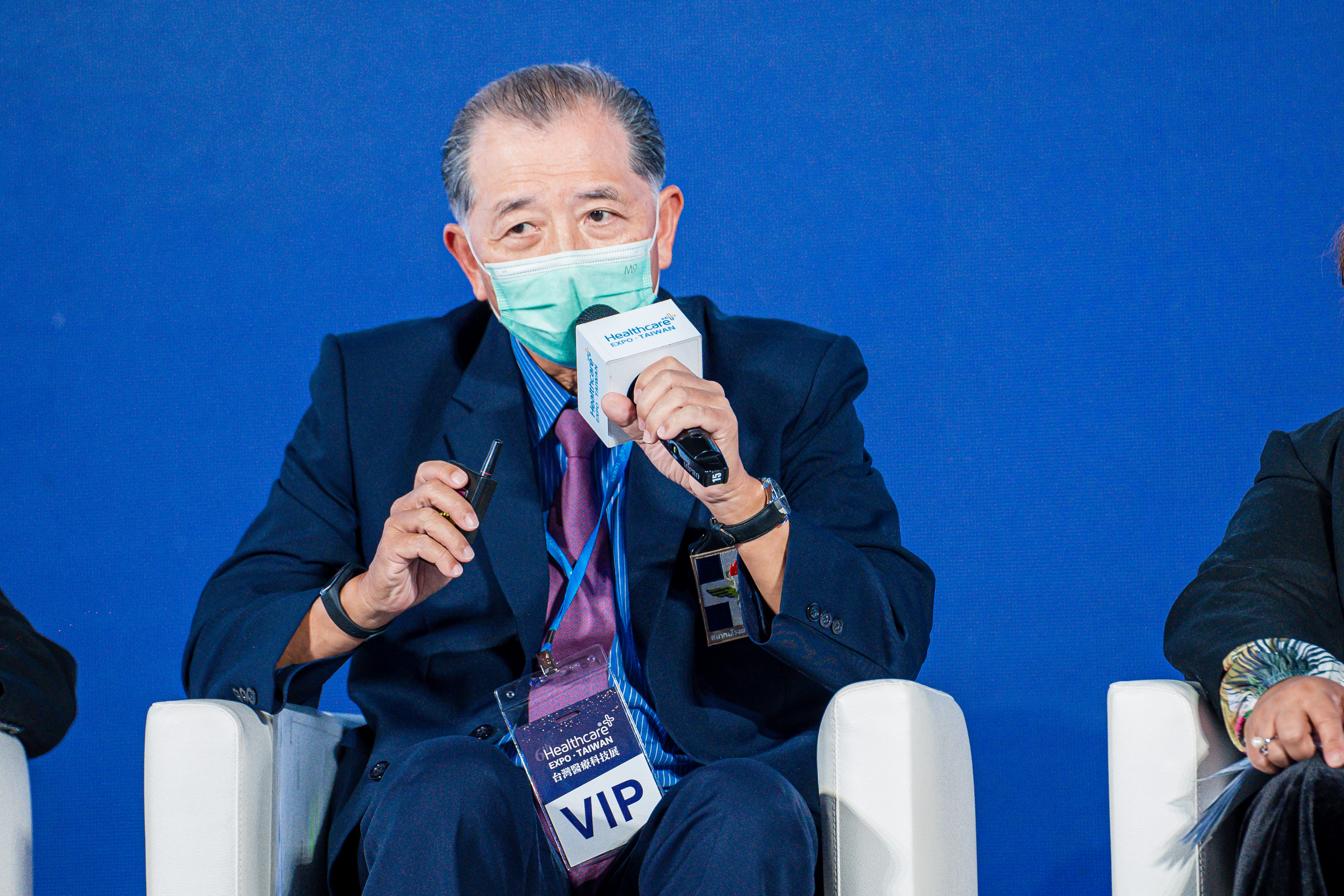
▴Dr Chaisit Kubwiwat, Director of Vibhavadi Hospital shared what Thailand is on the lookout of hardware and infrastructure
Malaysia: The urge to transformation in electronic medical records
Datuk Dr Kuljit Singh, President of the Association of Private Hospitals Malaysia, indicated the facts that the 32-million-populated country is no stranger to cancer treatment but proton therapy is not yet made available owing to the pricing. The ratio of specialty-doctor-patient is also low, he added. In Malaysia, cancer genomics is deemed navigational, paired with no regulatory framework and being conducted within the wall of academia.
On top of that, electronic medical records, as per Dr Singh, is imperative to Malaysia's healthcare system, and he wished Taiwan could play a role in Malaysia's transition to and transformation in EMR/EHR systems as well as cancer genomics.
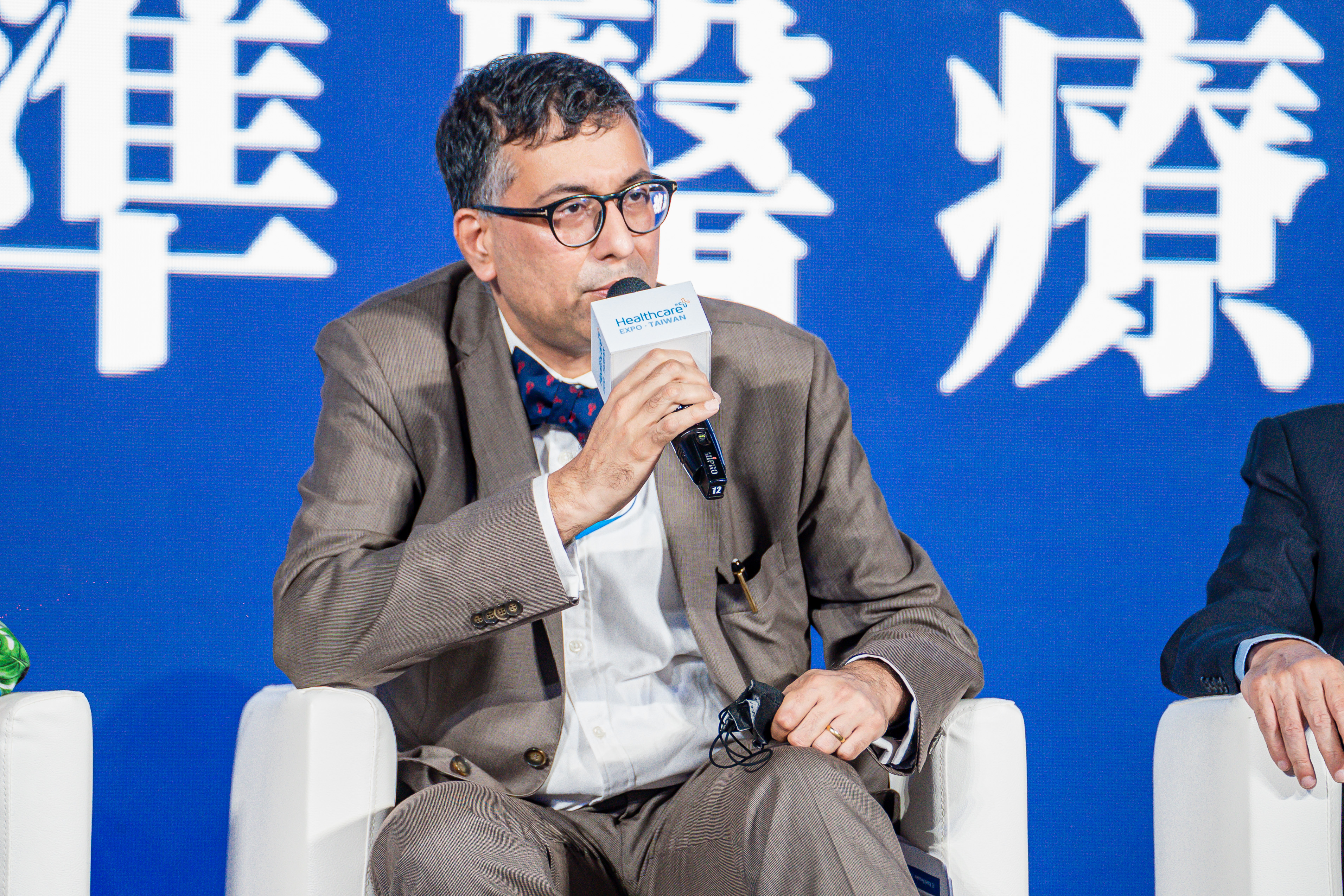
▴Datuk Dr Kuljit Singh, President of Association of Private Hospitals Malaysia shared Malaysia's industry landscape
Vietnam: Looking to partner with Taiwan for cancer treatment
Private hospitals in Vietnam has just started with proton therapy. Cancers can now be diagnosed early and treated properly. The Vietnam Private Hospital Association is keen to work with Taiwan in cancer treatment in response to increased smoking and alcohol-drinking populations.
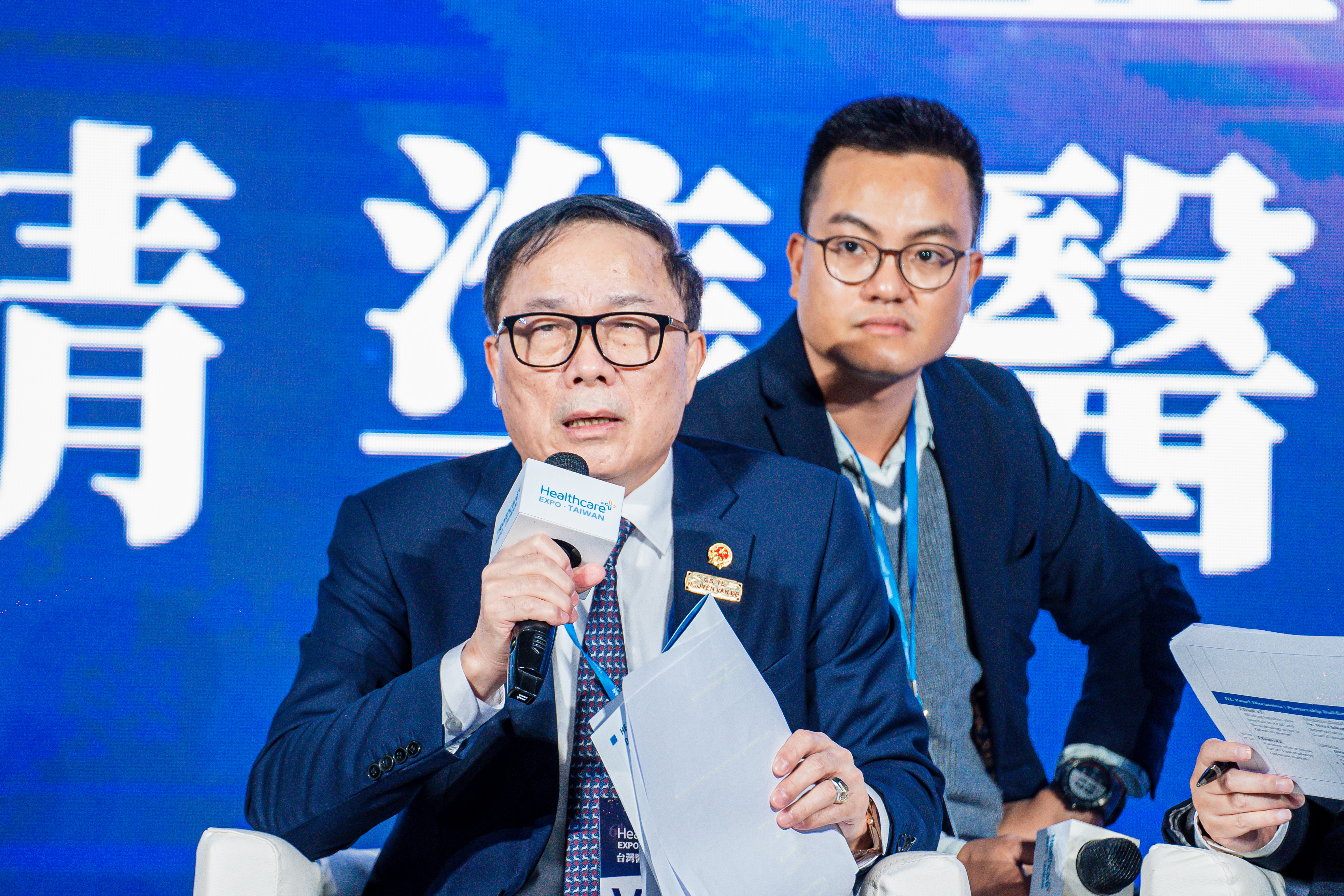
▴Dr Nguyen Van De, Vietnam Private Hospital Association looked forward to working with Taiwan's healthcare sector
Dr Tran Doan Dao, Hospital of Shingmark Medical University Dong Nai, indicated that the hospital does not have a department of pathological anatomy and immunology unit and has little experience in medical imaging analysis and interpretation. The hospital is thus looking to have bilateral exchange initiatives with Taiwanese counterparts.
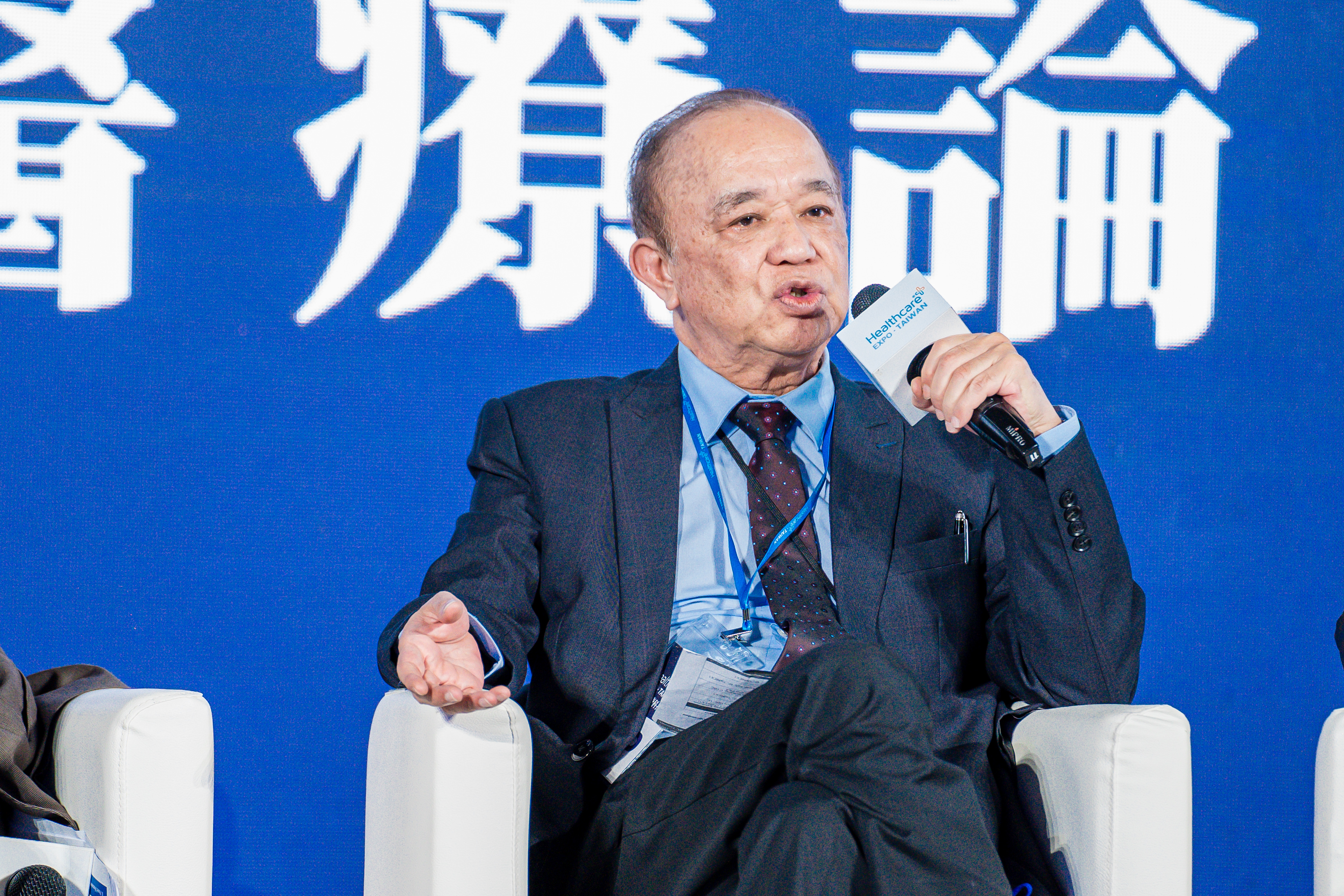
▴Dr Tran Doan Dao, Hospital of Shingmark Medical University Dong Nai expected a solid partnership with Taiwan
Philippine: Eyeing on medical AI, telemedicine and proton therapy
With over 40 years of experience in cancer treatment, the Philippines has specialty oncologists under the branch of gynaecology, haematology and surgery, although the challenge facing unequal distribution of specialty doctors in the country, said Dr Maria Lourdes K. Otayza. Particle therapy is similar to that in Malaysia, which is not made available for Filipinos because of the cost. A Philippine hospital development plan has called for 72 local authorities to establish nine cancer centres all over the country so patients will have better access to cancer diagnosis and medical exams outside big cities. The plan will subsequently import the equipment needed for brachytherapy from Varian Medical Systems.
The Philippines has also recently launched its first genomic research project with trials specifically targeting the Filipino race. The Philippines welcomes the cooperation of pharmaceutical companies and relevant sectors that wish to conduct clinical trials, and is looking forward to the formation of sister hospitals abroad to work together on AI-assisted diagnostics and telemedicine.
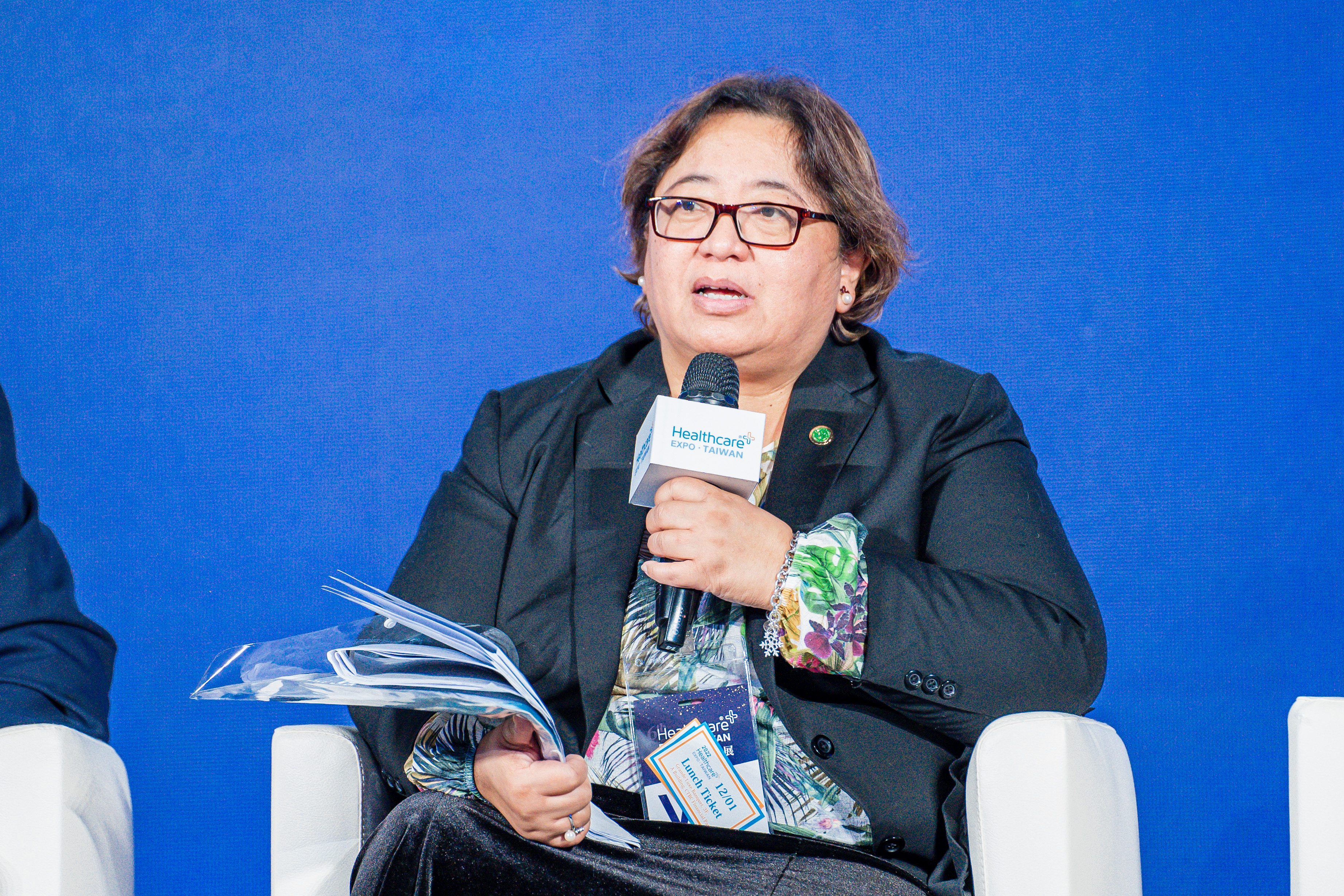
▴Dr Maria Lourdes K. Otayza, Director of the Philippine Hospital Association identified medical AI and telemedicine for further development
Indonesia: Short of laboratory and testing equipment, genomic research in its infancy
Agus Dwi Susanto, representative of Persahabatan Hospital in Indonesia, and Dr Iwan Dakota, Secretary General of the Central Government Hospitals Association, also shared the current status of cancer treatment in Indonesia. The issues around laboratory tests not covered by the Indonesian government's health insurance, hospitals not well-equipped with diagnostic medical devices and limited access to cancer treatment in rural/remote areas, resulting in relevant services to have outsourced.
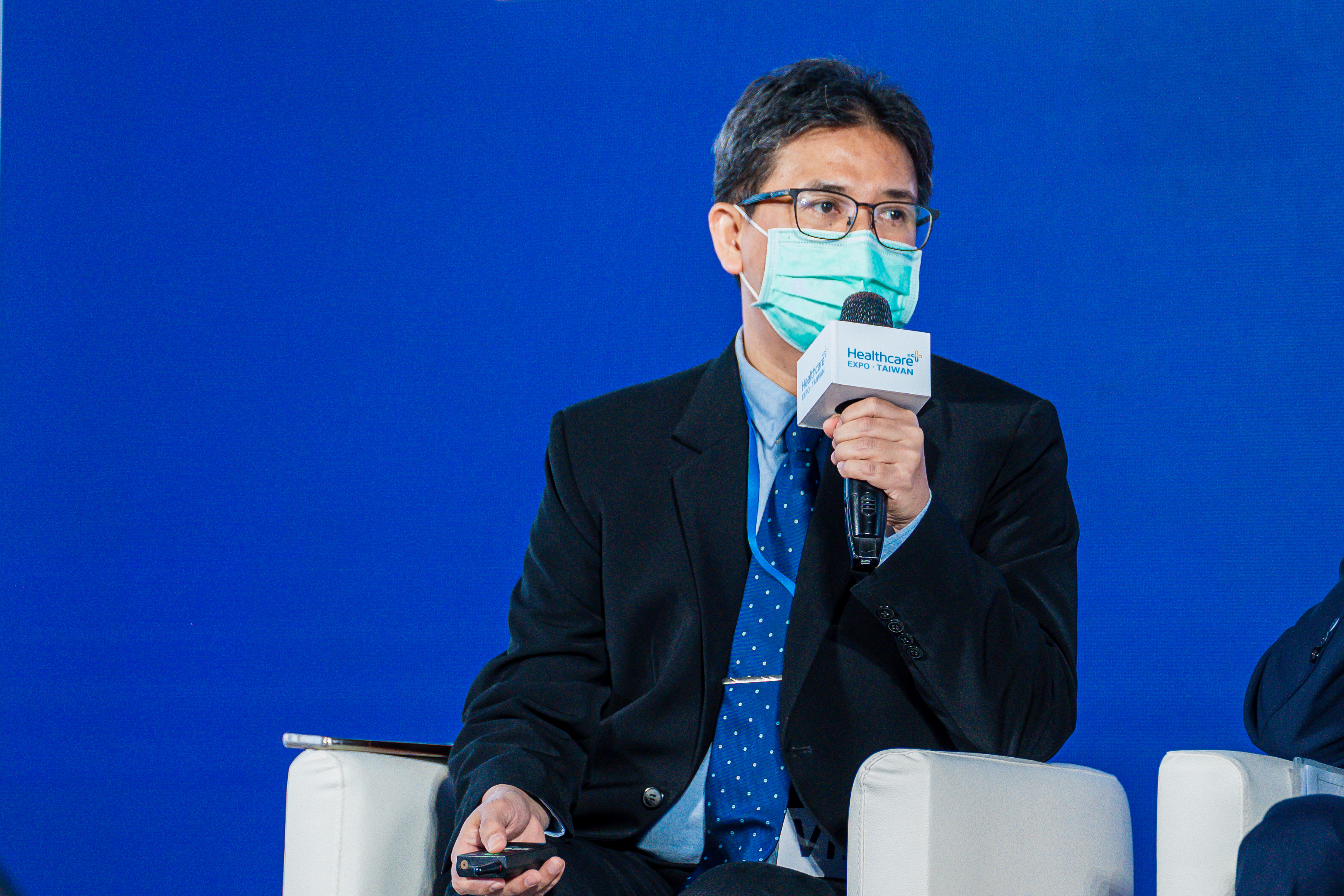
▴Agus Dwi Susanto, representative of Persahabatan Hospital
Dr. Iwan Dakota further mentioned that the Indonesian government has a large-scale database and expects all hospitals to adopt electronic medical record systems by 2024. With a population of 270 million and more than 10,000 islands, Indonesia is also actively developing telemedicine. He praised Taiwan's excellent EMR system, medical imaging and telemedicine, and looked forward to seeing more bilateral projects regarding healthcare.
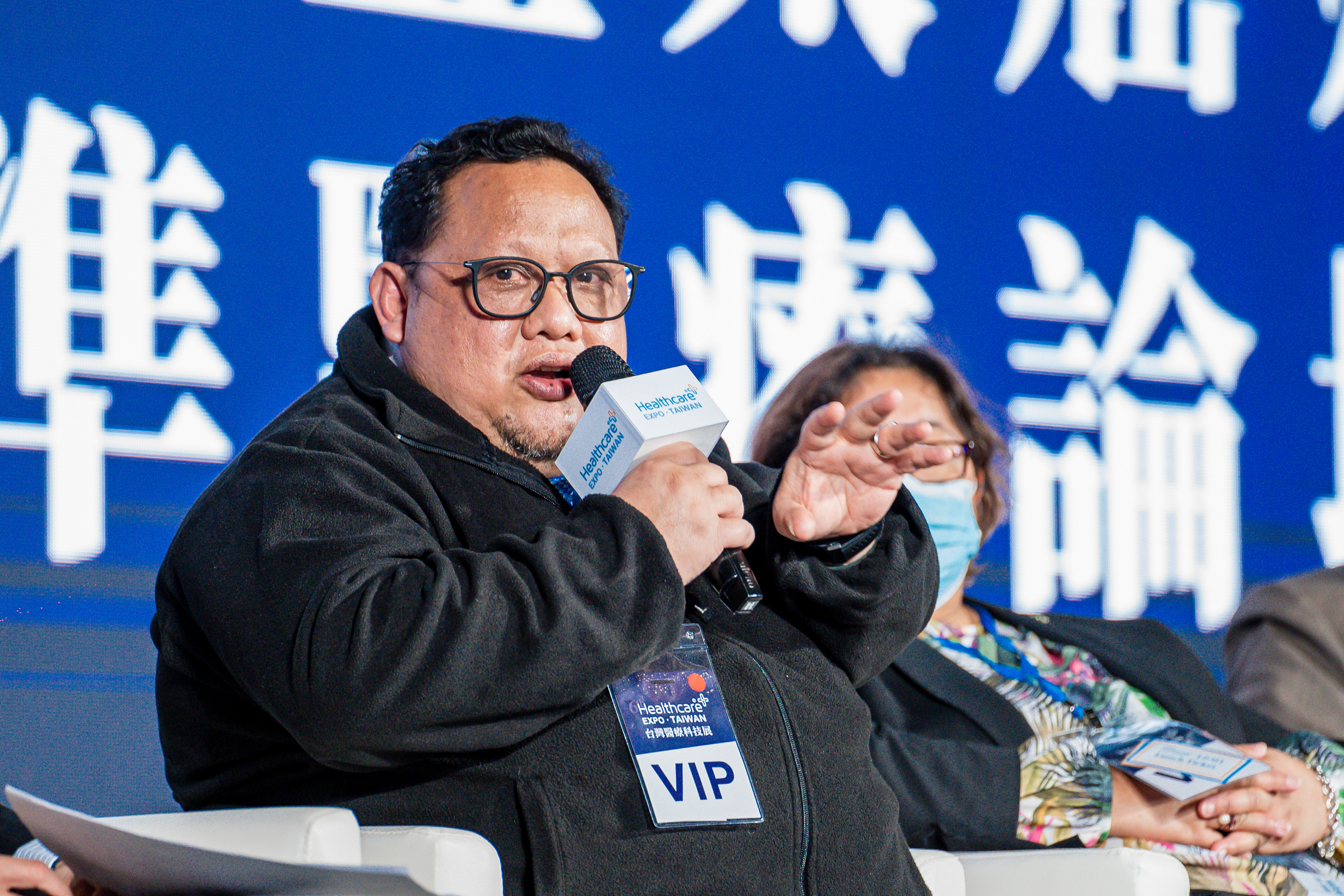
▴Dr Iwan Dakota, Secretary General, Association of Central Government Hospital, Indonesia shared challenges facing the country